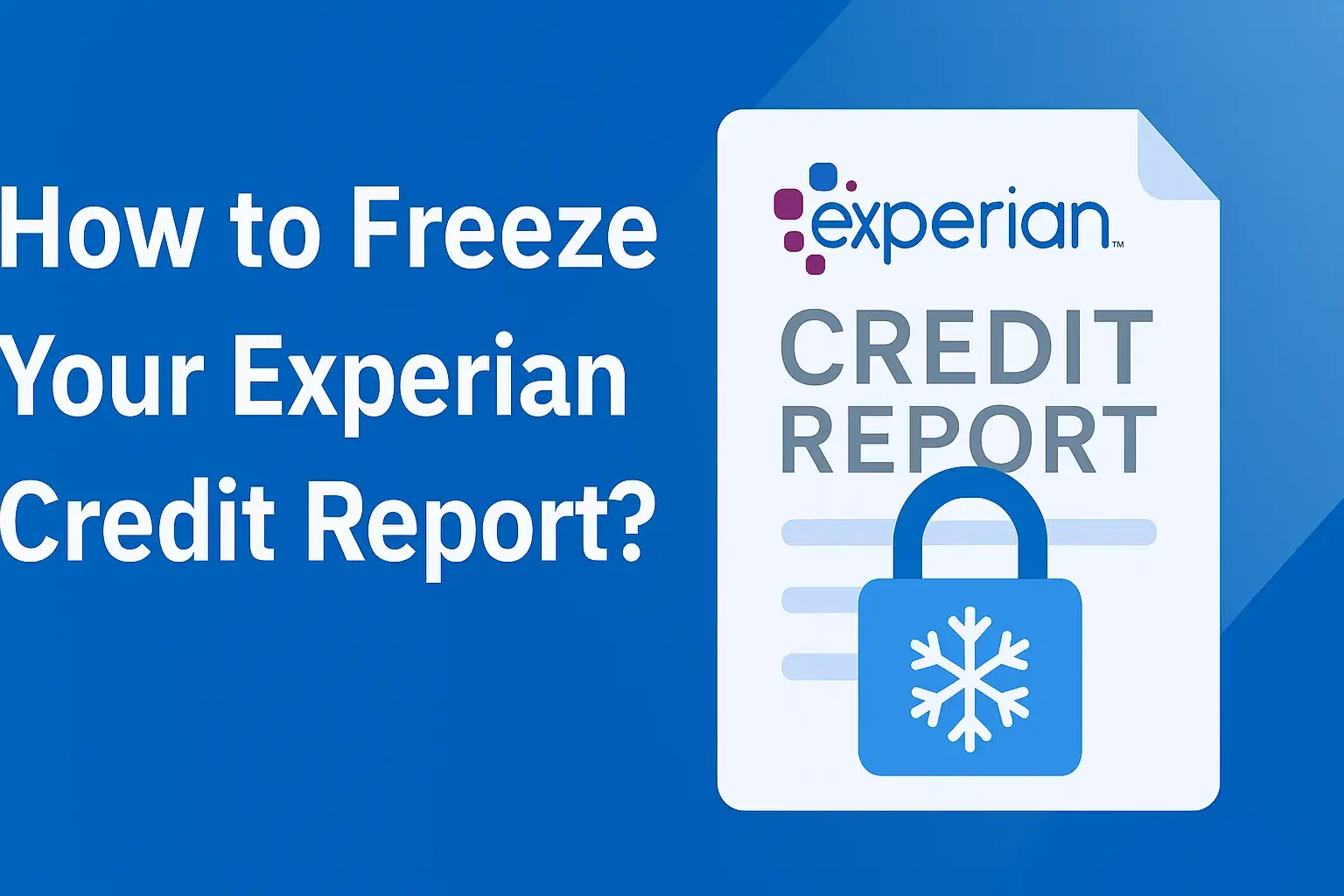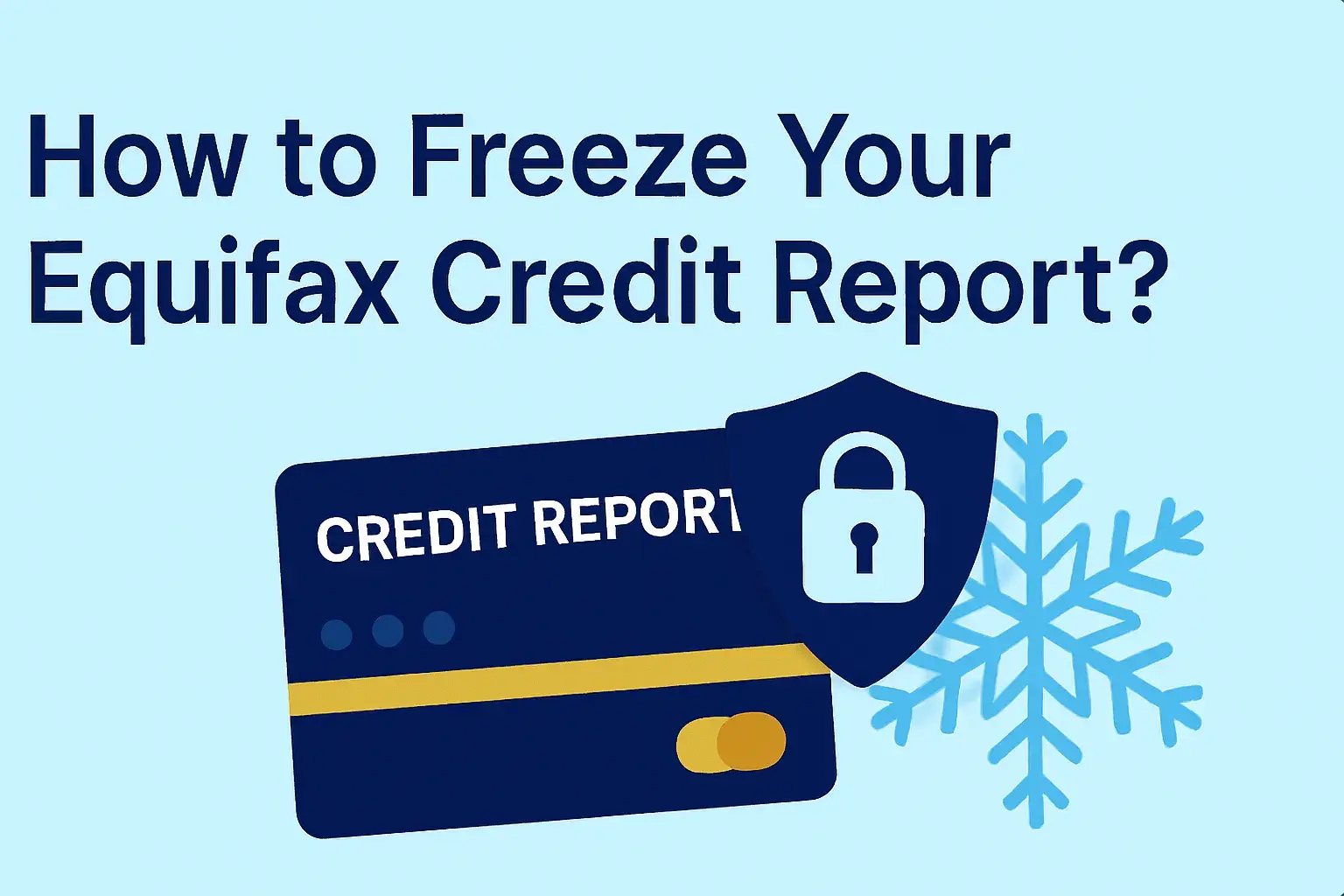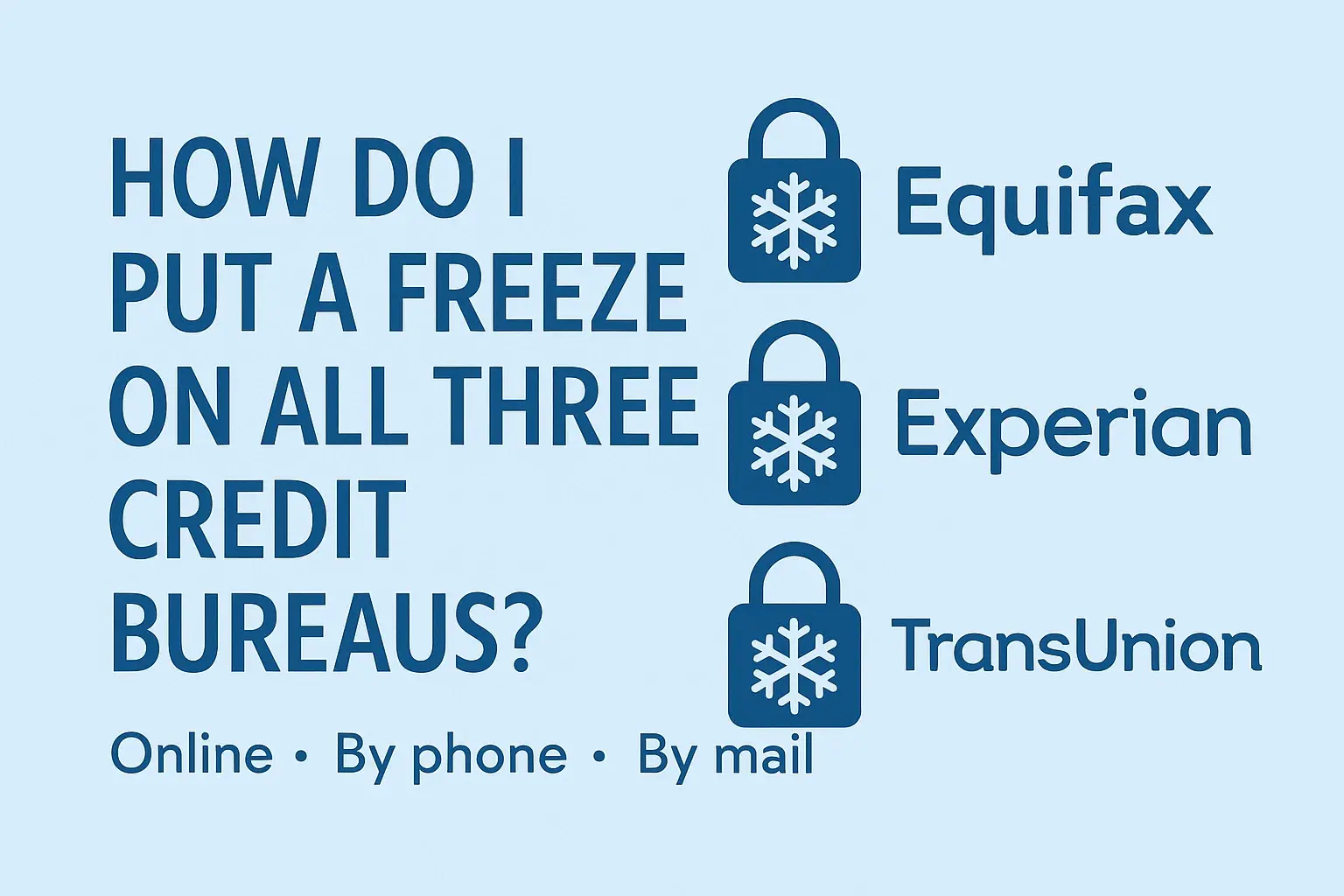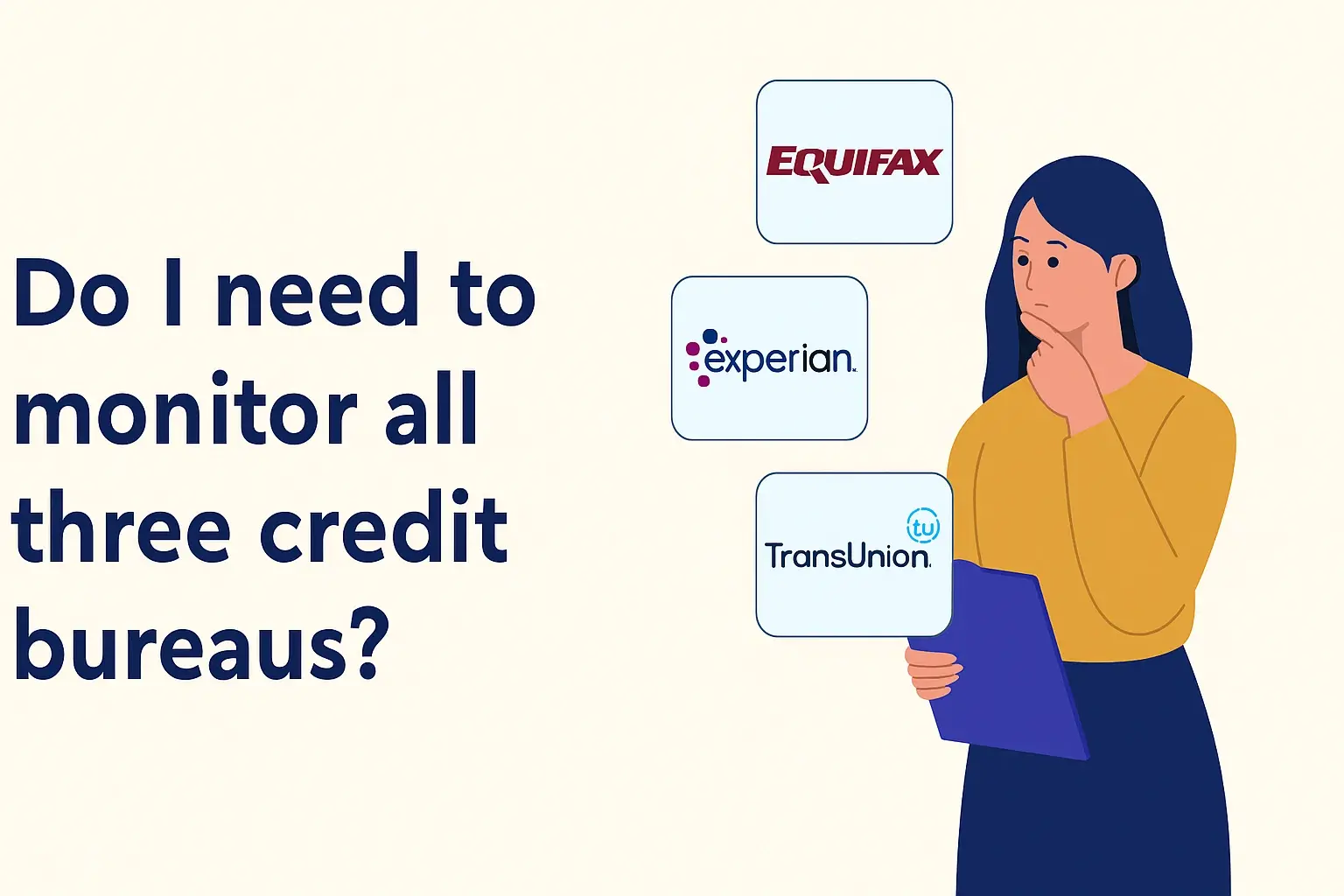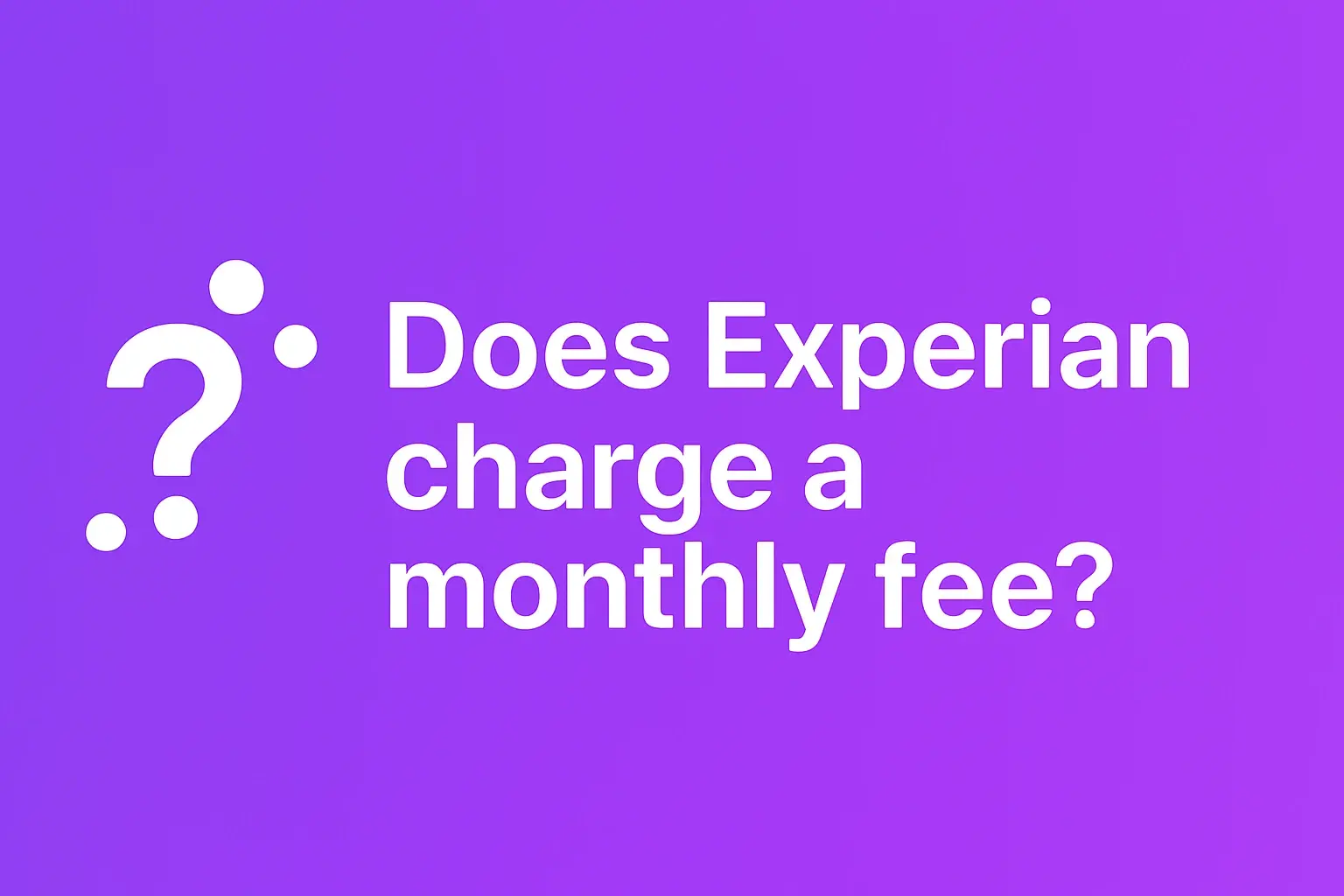-
Posted on: 21 Dec 2022
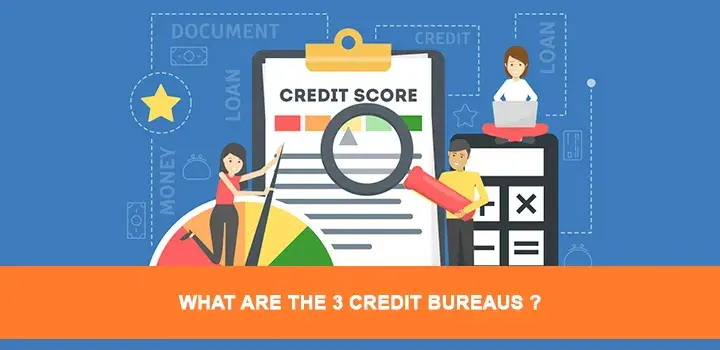
-
Understanding the three major credit bureaus in the USA is fundamental to managing your financial health. These agencies compile your credit history, influencing loan approvals, interest rates, and even rental applications. Knowing who they are and how they operate empowers you to take control of your credit score.
Understanding the Three Credit Bureaus
In the United States, a robust credit reporting system exists to help lenders assess the risk associated with lending money to individuals. At the heart of this system are three primary organizations, often referred to as the "big three" credit bureaus. These entities are responsible for collecting, maintaining, and disseminating credit information on millions of American consumers. While their ultimate goal is similar – to provide a comprehensive financial snapshot – each bureau has its own history, operational nuances, and areas of specialization. Understanding these three key players is the first step toward mastering your personal finances and ensuring a healthy credit future. They are Equifax, Experian, and TransUnion. These are the entities that lenders, landlords, insurers, and even potential employers rely on to make informed decisions about you.
Equifax: A Deep Dive
Equifax is one of the oldest and most established credit bureaus in the United States, with a history stretching back to 1899. Initially founded as a retail credit company, it has evolved significantly over the decades to become a global information solutions provider. Equifax's core business revolves around compiling and analyzing consumer credit data, offering credit reports and scores to lenders and other businesses. They also provide a wide range of data analytics and marketing services. In 2025, Equifax continues to be a dominant force in the credit reporting industry, processing vast amounts of financial data from a multitude of sources.
Equifax's Data Sources
Equifax gathers information from a diverse range of sources, including:
- Banks and credit unions (for credit cards, loans, mortgages)
- Retailers (for store credit cards)
- Mortgage lenders
- Auto loan providers
- Public records (such as bankruptcies and judgments, though this is becoming less common due to data privacy regulations)
- Collection agencies
The sheer volume and variety of data points Equifax collects allow them to construct detailed credit profiles for individuals. This data is crucial for assessing creditworthiness, enabling lenders to make decisions about extending credit and setting terms.
Equifax's Role in the Financial Ecosystem
Equifax plays a vital role in the modern financial landscape. When you apply for a loan, a credit card, or even rent an apartment, the entity you're applying to will likely pull your credit report from Equifax (or one of the other two bureaus). The information on this report helps them gauge your ability and willingness to repay borrowed money. Equifax's credit scores, derived from the data on their reports, are a key metric used in these decisions. These scores are numerical representations of your credit risk, with higher scores generally indicating lower risk to lenders.
Key Services Offered by Equifax
Beyond credit reporting, Equifax offers a suite of services aimed at both consumers and businesses. For consumers, these often include:
- Credit monitoring services
- Identity theft protection
- Tools to help understand and improve credit scores
For businesses, Equifax provides:
- Credit risk assessment tools
- Data analytics and insights
- Marketing services
- Fraud prevention solutions
In 2025, Equifax continues to invest in technology to enhance its data processing capabilities and offer more sophisticated analytical tools, aiming to provide deeper insights into consumer behavior and risk.
Experian: Global Reach, Local Impact
Experian is another of the "big three" credit bureaus, distinguished by its significant global presence. While headquartered in Dublin, Ireland, its operations in the United States are extensive and deeply integrated into the American financial system. Experian has a long history, with roots tracing back to the late 1980s, and has grown through strategic acquisitions and technological advancements. In 2025, Experian is recognized for its comprehensive data assets and its innovative use of technology to provide credit information and decisioning tools across various industries.
Experian's Global Footprint
What sets Experian apart is its international reach. The company operates in numerous countries worldwide, providing credit reporting and related services to a global customer base. This global perspective allows Experian to leverage insights from different markets, though its US operations remain a cornerstone of its business. For US consumers, this means their credit data is managed by a company with extensive experience in diverse regulatory and economic environments.
Data Collection and Reporting at Experian
Similar to Equifax, Experian collects data from a wide array of sources. These include:
- Lenders of all types (banks, credit unions, auto finance companies)
- Credit card issuers
- Utility companies (in some cases, for specific services)
- Telecommunications providers
- Public records (historically, though less so now)
- Rental payment history (increasingly)
Experian's credit reports provide a detailed history of an individual's borrowing and repayment behavior. This information is then used to generate credit scores, such as the popular Experian National Equivalency Score (FICO Score). These scores are pivotal in lending decisions across the US.
Experian's Diverse Business Offerings
Experian's services extend beyond traditional credit reporting. They are a major provider of:
- Marketing services, helping businesses understand and reach their target audiences
- Decision analytics, providing tools for businesses to make more informed choices
- Fraud and identity services, protecting consumers and businesses from fraudulent activities
- Consumer services, including credit monitoring, identity theft protection, and tools for credit score improvement.
In 2025, Experian is focused on leveraging artificial intelligence and machine learning to enhance its data analysis capabilities, offering more predictive insights and personalized solutions for both consumers and businesses. Their emphasis on data innovation positions them as a forward-thinking player in the credit reporting space.
TransUnion: Data and Innovation
TransUnion is the third of the major credit bureaus in the USA. Founded in 1968 as a holding company for a railroad company, it quickly pivoted to information services, focusing on credit reporting. TransUnion has established itself as a significant player in the industry, known for its technological prowess and its expansion into emerging markets. In 2025, TransUnion continues to be a critical component of the credit reporting infrastructure, providing essential data and insights to a vast network of businesses and consumers.
TransUnion's Data Scope and Reach
TransUnion's data collection efforts are broad, mirroring those of Equifax and Experian. They gather information from:
- Financial institutions (banks, credit card companies)
- Auto lenders
- Mortgage lenders
- Student loan providers
- Utility and telecom companies
- Landlords (through specific reporting programs)
- Collection agencies
The data is used to create detailed credit histories that are essential for assessing credit risk. TransUnion's credit reports are a vital tool for lenders when evaluating loan applications, determining interest rates, and setting credit limits. Their credit scoring models, including the popular VantageScore (developed in collaboration with Experian and Equifax), are widely used in the industry.
Technological Advancements at TransUnion
A key characteristic of TransUnion is its commitment to innovation and technology. The company has consistently invested in advanced data analytics, artificial intelligence, and machine learning to improve the accuracy and utility of its credit reporting services. This focus on technology allows TransUnion to:
- Develop more sophisticated credit scoring models
- Enhance fraud detection capabilities
- Offer personalized insights to consumers
- Provide businesses with more predictive analytics
In 2025, TransUnion is particularly focused on expanding its data sources to include alternative data, such as rent payments and utility payments, to provide a more inclusive view of creditworthiness for individuals who may not have extensive traditional credit histories. This approach aims to open up credit opportunities for a broader segment of the population.
TransUnion's Consumer and Business Solutions
TransUnion provides a range of services designed to help both consumers and businesses. For consumers, these include:
- Credit monitoring and alerts
- Identity protection services
- Tools for understanding and improving credit scores
- Access to their credit reports
For businesses, TransUnion offers:
- Credit risk assessment and management solutions
- Fraud prevention and identity verification services
- Marketing and data analytics services
- Customer acquisition and retention tools
TransUnion's dedication to technological advancement and data innovation ensures its continued relevance and influence in the evolving landscape of credit reporting.
How the Credit Bureaus Work Together
While Equifax, Experian, and TransUnion are distinct entities, they operate within a largely interconnected system. Lenders and other businesses typically subscribe to services from all three bureaus, or at least two, to get a comprehensive view of a consumer's creditworthiness. This is because each bureau may receive slightly different information from creditors, or the data may be reported at different times. Consequently, a consumer's credit report and credit score can vary slightly from one bureau to another.
Information Flow and Reporting
The process begins with creditors – banks, credit card companies, auto lenders, etc. – reporting account activity to the credit bureaus. This reporting is typically done on a monthly basis. When you open a new credit account, make a payment, miss a payment, or close an account, this information is sent to the bureaus. Each bureau then compiles this data into a credit report for each consumer. The bureaus do not create this information; they are repositories and processors of data reported by others.
Why Lenders Use All Three
Lenders often pull credit reports from multiple bureaus for several reasons:
- Comprehensive View: Different creditors may report to different bureaus, or report at different times. Using multiple reports provides a more complete picture.
- Risk Mitigation: Relying on data from multiple sources can help lenders mitigate risk by cross-referencing information and identifying potential discrepancies.
- Score Variation: Credit scores can differ slightly between bureaus due to variations in data or the scoring models used. Lenders may consider a range of scores or a specific score from a particular bureau.
- Regulatory Requirements: In some cases, regulations may require lenders to consider information from multiple sources.
This interconnectedness means that actions affecting your credit with one lender can be reflected across your reports at all three major bureaus, underscoring the importance of consistent, responsible credit management.
Credit Scoring Models
While the bureaus collect the raw data, credit scoring models interpret this data to produce a credit score. The most well-known scoring model is the FICO Score, developed by the Fair Isaac Corporation. However, the three major credit bureaus also collaborate on the VantageScore model. Each bureau may use different versions of these models or have proprietary scoring systems. This is another reason why your credit score can vary slightly depending on which bureau's report is used and which scoring model is applied.
Consumer Access and Discrepancies
Consumers have the right to access their credit reports from each of the three bureaus annually for free through AnnualCreditReport.com. It is highly recommended to check your reports from all three bureaus regularly to ensure accuracy. Discrepancies can occur, and understanding how the bureaus interact helps in identifying and correcting any errors that might appear on your reports.
What Information Do They Collect?
The credit bureaus collect a wide array of personal and financial data to construct your credit report. This information is used to assess your creditworthiness and is crucial for lenders making decisions about your financial applications. Understanding the types of data collected is key to managing your credit effectively.
Personal Identifying Information
This section includes details that help identify you and differentiate you from others with similar names. It typically contains:
- Full Name
- Social Security Number (SSN)
- Date of Birth
- Current and Previous Addresses
- Phone Numbers
- Employment Information (employer name, position, and dates of employment – though this is less common now due to privacy concerns and its limited impact on scores)
It's important that this information is accurate, as errors here can sometimes lead to confusion with other individuals' credit histories.
Credit Accounts Information
This is the core of your credit report and details your history with various forms of credit. It includes:
- Type of Account: Credit cards, installment loans (auto loans, mortgages, personal loans), student loans, etc.
- Creditor Name: The name of the company that extended you credit.
- Account Number: Usually partially masked for security.
- Date Opened: When the account was established.
- Credit Limit or Loan Amount: The maximum amount you can borrow on a credit card or the original amount of a loan.
- Current Balance: The amount you currently owe on the account.
- Payment History: This is one of the most critical pieces of information. It details whether payments were made on time, if they were late (and by how many days, e.g., 30, 60, 90 days), if the account is past due, or if it has been charged off.
- Status: Whether the account is open, closed, paid off, or in collections.
- Date of Last Activity: The date of the most recent transaction or payment.
Responsible management of these accounts, particularly consistent on-time payments and keeping credit utilization low, significantly impacts your credit score.
Public Records and Collections
This section may include information from public records and accounts that have been sent to collection agencies. Historically, this included:
- Bankruptcies (Chapter 7, 11, 13)
- Civil judgments
- Tax liens
- Foreclosures
- Accounts sent to collection agencies
It's important to note that due to changes in regulations and data availability, the presence and detail of public records on credit reports have diminished. However, negative information like bankruptcies and significant collection accounts can remain on your report for many years.
Credit Inquiries
When you apply for new credit, the lender typically pulls your credit report. This action is recorded as an inquiry on your report. There are two types:
- Hard Inquiries: Occur when a lender checks your credit as part of a credit application (e.g., for a loan or credit card). These can slightly lower your credit score.
- Soft Inquiries: Occur when you check your own credit, or when a company checks your credit for pre-approved offers or existing account reviews. These do not affect your credit score.
The bureaus keep a record of inquiries to show lenders who has recently accessed your credit information.
By understanding these categories of information, consumers can better interpret their credit reports and identify areas for improvement. For instance, reviewing payment history and credit utilization are direct ways to positively influence your credit standing.
The Impact of Your Credit Reports
Your credit report is far more than just a record of your financial past; it's a dynamic document that significantly influences your present and future financial opportunities. The information contained within your reports held by Equifax, Experian, and TransUnion affects nearly every major financial decision you'll make. Understanding this impact is crucial for proactive financial management.
Access to Credit and Loans
The most direct impact of your credit report is on your ability to obtain credit. When you apply for:
- Credit Cards: Your credit report determines whether you're approved, your credit limit, and the interest rate you'll be offered. A strong report increases your chances of getting premium rewards cards.
- Mortgages: Lenders use your credit report to assess the risk of lending you a large sum for a home. A good report is essential for approval and can lead to lower interest rates, saving you tens of thousands of dollars over the life of the loan.
- Auto Loans: Similar to mortgages, your credit report dictates loan approval and the interest rate on car financing.
- Personal Loans: Whether for debt consolidation, unexpected expenses, or other needs, your creditworthiness as reflected in your report is key.
A poor credit report can lead to outright rejection for credit or being offered loans with excessively high interest rates, making borrowing much more expensive.
Interest Rates and Costs
Beyond just approval, your credit report directly influences the cost of borrowing. Lenders categorize borrowers into risk tiers based on their credit profiles. Individuals with excellent credit scores, derived from strong credit reports, are seen as low-risk and are offered the most favorable interest rates. Conversely, those with lower scores face higher interest rates, meaning they pay more for the privilege of borrowing money. This can add up significantly over time, impacting your overall financial well-being.
Renting an Apartment
Landlords increasingly use credit reports as part of their tenant screening process. They want to ensure that potential renters are financially responsible and likely to pay their rent on time. A good credit report can make it easier to secure desirable rental properties, while a poor one might lead to rejection or requirements for a larger security deposit or a co-signer.
Insurance Premiums
In many states, insurance companies use credit-based insurance scores, which are derived from your credit report, to help set premiums for auto and homeowners insurance. Studies have shown a correlation between credit history and the likelihood of filing insurance claims. While controversial, this practice means that a strong credit report can potentially lead to lower insurance costs.
Employment Opportunities
Some employers, particularly in industries involving financial responsibility or access to sensitive information, may review a candidate's credit report as part of their background check. While they typically cannot see your credit score, they can see your payment history, bankruptcies, and other credit-related information. This can influence hiring decisions, especially for positions of trust.
Utility Services and Cell Phone Plans
When you sign up for services like electricity, gas, water, or a new cell phone plan, companies may check your credit report. A good report might allow you to start service without a deposit. However, a poor credit history could result in a requirement to pay a security deposit upfront or limit your options for service plans.
In essence, your credit report acts as a financial passport. A well-maintained report opens doors to opportunities and savings, while a neglected one can create significant barriers and increase costs across many aspects of your life. Regularly reviewing and understanding your reports from Equifax, Experian, and TransUnion is therefore a critical component of responsible financial stewardship.
How to Check Your Credit Reports
Regularly reviewing your credit reports from Equifax, Experian, and TransUnion is a cornerstone of good financial health. It allows you to monitor your credit activity, identify potential errors, and detect signs of identity theft. Fortunately, accessing your credit reports is straightforward and largely free.
The Official Source: AnnualCreditReport.com
The Fair Credit Reporting Act (FCRA) mandates that the three major credit bureaus – Equifax, Experian, and TransUnion – provide consumers with a free copy of their credit report every 12 months upon request. The official website for obtaining these free reports is AnnualCreditReport.com. This is the only federally authorized source for free annual credit reports.
Here's how to use it:
- Visit the Website: Go to AnnualCreditReport.com.
- Request Your Reports: You will be prompted to enter personal information to verify your identity.
- Choose Your Reports: You can choose to get reports from one bureau at a time, or all three at once. It's often recommended to stagger your requests throughout the year (e.g., get Equifax in January, Experian in May, and TransUnion in September) to monitor your credit more continuously.
- Review Carefully: Once you receive your reports, download and save them. Review each section thoroughly for accuracy.
Other Ways to Access Your Credit Information
While AnnualCreditReport.com provides your full credit reports, other services offer access to your credit score and limited report summaries:
- Credit Card Companies and Banks: Many credit card issuers and banks now offer free access to your credit score (often a FICO or VantageScore) and sometimes a summary of your credit report through their online portals or mobile apps. This is a convenient way to keep track of your score regularly.
- Credit Monitoring Services: Numerous private companies offer credit monitoring services. These services typically provide ongoing access to your credit scores and reports, along with alerts for significant changes or potential fraud. Some offer these services for free, while others charge a monthly fee. While useful, remember that the most comprehensive reports are available for free at AnnualCreditReport.com.
- Experian, Equifax, and TransUnion Websites: The individual bureaus also offer services directly on their websites. While they provide free annual reports via AnnualCreditReport.com, they also offer paid services for more frequent access, credit monitoring, and identity protection.
What to Look For When Reviewing Your Reports
When you check your credit reports, pay close attention to the following:
- Personal Information: Ensure your name, address, SSN, and date of birth are correct.
- Account Information: Verify that all listed credit accounts belong to you and that the balances, credit limits, and payment statuses are accurate.
- Payment History: Check for any late payments that you don't recognize.
- Inquiries: Review the list of hard inquiries to ensure all are for credit applications you authorized.
- Public Records: Look for any public records (like bankruptcies or judgments) that are incorrect or outdated.
- New Accounts: Ensure no new accounts have been opened in your name without your knowledge.
Proactive monitoring of your credit reports is a powerful tool for maintaining a healthy credit profile and safeguarding yourself against financial fraud.
Disputing Errors on Your Credit Reports
Errors on credit reports are more common than you might think. These mistakes can range from minor inaccuracies, like a misspelled name, to significant issues, such as incorrect late payments or accounts that aren't yours. The Fair Credit Reporting Act (FCRA) grants you the right to dispute any information on your credit report that you believe is inaccurate or incomplete. Taking action to correct these errors is crucial, as they can negatively impact your credit score and your ability to access credit.
Identifying Errors
The first step is to meticulously review your credit reports from Equifax, Experian, and TransUnion. Look for:
- Personal information that is incorrect (addresses, names, SSN).
- Accounts that you do not recognize or did not open.
- Incorrect payment statuses (e.g., a payment marked as late when it was made on time).
- Accounts that have been closed but are still showing an active balance.
- Incorrect credit limits or balances.
- Duplicate accounts.
- Inquiries from lenders you haven't applied to.
The Dispute Process
Once you've identified an error, you can initiate a dispute with the credit bureau that generated the report containing the error. The FCRA requires the bureaus to investigate your dispute within a reasonable period, typically 30 days, though it can be extended to 45 days if you provide additional information. The bureaus must then contact the furnisher of the information (the creditor or lender) to verify its accuracy.
How to File a Dispute
You have a few options for filing a dispute:
- Online: This is often the fastest and most efficient method. All three major credit bureaus have online dispute portals on their websites. You'll typically need to create an account and follow their guided process, uploading any supporting documentation.
- By Mail: You can also file a dispute by sending a written letter. It's recommended to send it via certified mail with a return receipt requested, so you have proof of delivery. Include copies (not originals) of any supporting documents and clearly state what information you are disputing and why.
- By Phone: While you can often initiate a dispute by phone, it's generally advisable to follow up in writing or online to create a clear record of your communication.
When disputing, be specific: Clearly identify the account or information you are disputing and explain the nature of the error. Provide any evidence you have to support your claim (e.g., copies of canceled checks, billing statements, correspondence with the creditor).
What Happens After You Dispute?
After you file a dispute, the credit bureau will:
- Acknowledge receipt of your dispute.
- Investigate the disputed information by contacting the data furnisher.
- The furnisher must then verify the accuracy of the information.
- If the furnisher cannot verify the information, or if it's found to be inaccurate, it must be corrected or removed from your credit report.
- The credit bureau will notify you of the outcome of the investigation in writing.
If the disputed information is corrected or removed, you are entitled to receive a free copy of your updated credit report from that bureau.
Disputing with the Data Furnisher
In some cases, it may also be beneficial to contact the creditor or data furnisher directly to resolve the issue. If you can resolve it with them, they are obligated to report the correction to the credit bureaus. However, you should still file a dispute with the bureau(s) to ensure the correction appears on your credit report.
Correcting errors on your credit reports is a vital step in maintaining a strong credit profile. It requires diligence and attention to detail, but the positive impact on your creditworthiness is well worth the effort.
The Importance of Credit Monitoring
In today's digital age, safeguarding your personal and financial information is paramount. Credit monitoring services offer a proactive way to keep tabs on your credit reports from Equifax, Experian, and TransUnion, providing an essential layer of protection against identity theft and fraudulent activity. Understanding why credit monitoring is important can help you make informed decisions about your financial security.
Detecting Identity Theft and Fraud
Identity thieves can open new credit accounts, take out loans, or make fraudulent purchases in your name. These activities can severely damage your credit score and lead to significant financial distress. Credit monitoring services alert you to suspicious activity on your credit reports, such as:
- New credit accounts opened in your name.
- Changes to your personal information (address, name).
- Significant inquiries on your credit report.
- Accounts going into collection.
These alerts give you a crucial head start in addressing fraudulent activity before it escalates. The sooner you detect and report identity theft, the easier it is to mitigate the damage.
Ensuring Accuracy of Your Credit Reports
As discussed previously, errors on credit reports are common. These mistakes can occur due to administrative oversights, data entry errors, or even misidentification. Credit monitoring allows you to regularly review your credit reports and scores, making it easier to spot and dispute any inaccuracies promptly. Maintaining accurate credit reports is vital for a good credit score and for securing favorable financial terms.
Tracking Your Credit Score Progress
Your credit score is a key indicator of your financial health. Credit monitoring services often provide regular updates on your credit score, allowing you to track your progress over time. This is invaluable for:
- Understanding the impact of your financial habits: See how paying bills on time, reducing debt, and managing credit utilization affects your score.
- Setting financial goals: Monitor your score as you work towards improving it for major purchases like a home or car.
- Pre-qualifying for loans: Knowing your score helps you understand which loan products you're likely to qualify for.
By keeping a close eye on your score, you can make more informed decisions about your borrowing and spending habits.
Peace of Mind
In an era where data breaches are frequent, having your credit monitored can provide significant peace of mind. Knowing that a service is actively watching your credit files for suspicious activity allows you to focus on other aspects of your life without the constant worry of potential financial compromise. This proactive approach to security is a valuable investment in your financial well-being.
Choosing a Credit Monitoring Service
When selecting a credit monitoring service, consider the following:
- Coverage: Does it monitor all three major credit bureaus (Equifax, Experian, TransUnion)?
- Alerts: What types of alerts does it provide, and how quickly are they delivered?
- Credit Score Access: Does it provide regular access to your credit score and insights into what's affecting it?
- Identity Theft Protection: What kind of identity theft insurance and restoration services are included?
- Cost: Are there free options, or what is the monthly/annual fee for paid services?
While free access to your full credit reports is available annually, investing in a reputable credit monitoring service can offer continuous vigilance and valuable insights, contributing significantly to your overall financial security.
The Future of Credit Reporting
The landscape of credit reporting is constantly evolving, driven by technological advancements, changing consumer expectations, and new regulatory considerations. Equifax, Experian, and TransUnion are at the forefront of these changes, adapting their practices to meet the demands of a dynamic financial world. In 2025 and beyond, several key trends are shaping the future of how creditworthiness is assessed.
Expansion of Data Sources
One of the most significant shifts is the move towards incorporating a wider range of data into credit assessments. Traditionally, credit reports have focused heavily on traditional credit accounts like loans and credit cards. However, the future will likely see:
- Rent Payment Data: More emphasis on reporting consistent rent payments, which can help individuals with limited traditional credit history build a stronger profile.
- Utility and Telecom Payments: Including on-time payments for utilities (electricity, gas, water) and telecommunications services can provide further insights into payment behavior.
- Cash Flow Data: With consumer consent, analyzing bank account transaction data (cash flow) can offer a real-time view of financial stability and spending habits, potentially leading to more inclusive credit scoring.
- Buy Now, Pay Later (BNPL) Services: The growing popularity of BNPL services means their payment history will increasingly be integrated into credit reports.
This expansion aims to create a more holistic and inclusive picture of an individual's financial responsibility, potentially opening up credit access for millions who are currently underserved.
Advanced Analytics and AI
Artificial intelligence (AI) and machine learning (ML) are revolutionizing how credit bureaus process and analyze data. In the coming years, expect to see:
- More Sophisticated Scoring Models: AI/ML can identify complex patterns and correlations in data that traditional methods might miss, leading to more accurate and predictive credit scores.
- Enhanced Fraud Detection: AI algorithms can detect anomalies and fraudulent activities in real-time with greater precision, improving security for both consumers and lenders.
- Personalized Insights: Bureaus may offer more tailored advice and tools to consumers based on their unique credit profiles, helping them improve their financial health more effectively.
Increased Focus on Consumer Control and Transparency
Consumers are increasingly demanding greater control over their data and more transparency in how their credit is assessed. This trend is likely to continue, leading to:
- Easier Dispute Resolution: Streamlined and faster processes for disputing errors on credit reports.
- Data Portability: Potentially greater ability for consumers to control and share their data across different platforms.
- Explainable AI: Efforts to make AI-driven credit scoring more transparent, so consumers understand why they received a particular score or decision.
Regulatory Evolution
As credit reporting practices evolve, so too will the regulatory landscape. Policymakers will continue to grapple with issues such as data privacy, the ethical use of AI in lending, and ensuring fair access to credit. Regulations will likely adapt to address new data sources and advanced analytical techniques, aiming to protect consumers while fostering innovation.
The Role of Fintech
Financial technology (fintech) companies are playing an increasingly important role, often partnering with or competing against traditional credit bureaus. Fintech innovations in areas like alternative data aggregation, real-time credit decisioning, and personalized financial management tools will continue to shape the industry.
The future of credit reporting promises to be more data-rich, technologically advanced, and consumer-centric. While the core function of assessing creditworthiness will remain, the methods and tools used by Equifax, Experian, and TransUnion will undoubtedly continue to transform.
Conclusion: Navigating Your Credit Landscape
Understanding the three major credit bureaus in the USA – Equifax, Experian, and TransUnion – is not merely an academic exercise; it's a critical component of achieving and maintaining robust financial health. These organizations serve as the gatekeepers of your creditworthiness, compiling the data that lenders, landlords, and insurers rely on to make decisions impacting your life. By demystifying their roles, the information they collect, and how they operate, you are empowered to take proactive control of your financial narrative.
Your credit reports, held by these three giants, are a reflection of your financial behavior. They detail your history with credit, your payment patterns, and any public records that may be associated with your name. The accuracy of this information is paramount, as even minor errors can lead to a lower credit score, higher interest rates, and denied applications. Therefore, regularly checking your reports via AnnualCreditReport.com and diligently disputing any inaccuracies are essential practices. Furthermore, staying vigilant through credit monitoring services can provide early warnings against identity theft and fraud, offering invaluable peace of mind.
The future of credit reporting promises greater inclusivity and technological sophistication, with expanded data sources and advanced analytics. As this landscape evolves, your understanding and active management of your credit remain your most powerful tools. By making timely payments, managing credit utilization responsibly, and staying informed about your credit reports, you can build and maintain a strong credit profile. This, in turn, will unlock better financial opportunities, save you money, and provide a solid foundation for achieving your long-term financial goals. Take charge of your credit today – your financial future depends on it.

